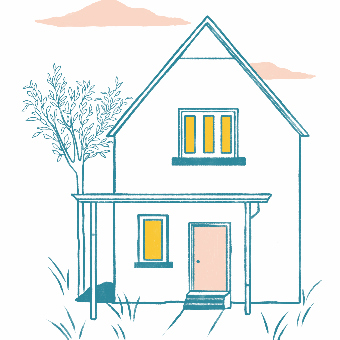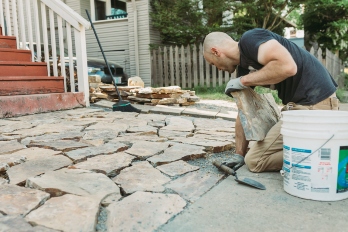When you think of a foreclosed property, you may picture a house that needs a little TLC but comes with a discounted price tag. But unfortunately, foreclosed homes often need quite a bit of work and aren’t always a deal.
Buying a foreclosed property can be tricky and potentially risky, so it’s best to go about it with both a specialized real estate agent and a real estate lawyer at your side. But before you consider taking one on, it helps to know that there are several ways to purchase a foreclosed home depending on where the home is in the foreclosure process.
Below is a basic breakdown of the four types of foreclosures you’ll see on the market — and remember, you can always take Framework Homebuyer Ed for more strategies to prepare for all that’s involved with the homebuying process.
Short sales
A home offered through a short sale is not technically a foreclosed property, but it is very similar.
In a short sale, you purchase the home directly from the owner, but the sale is subject to the lender’s review and approval.
Lenders may seek a short sale when a homeowner is unable to make their mortgage payments due to financial hardship and the mortgage loan balance becomes more than the value of the home (sometimes referred to as being “underwater”).
Despite its name, the process to purchase a short sale typically takes longer than a regular sale due to the lender’s approval process. It may take at least three months to complete a short sale.
It’s also important to note that a short sale doesn’t necessarily mean you are getting a deal on the property. The home is still being sold for the market value. It simply means that the owner is selling the home short of what they owe and are avoiding having a foreclosure reported on their credit history. (Check out our post on what lenders see in credit reports for more info).
Government-owned homes
Houses that were bought with US Department of Veterans Affairs (VA) or Federal Housing Administration (FHA) loans are repossessed by the federal government rather than by the lender and are then sold by real estate brokers on the government’s behalf.
(How is a real estate broker different from an agent? We explain.)
These are often referred to as “HUD homes” (with HUD being short for US Department of Housing and Urban Development). Affordable housing developers like nonprofits and community development corporations often get first dibs on these properties to fix them up and sell them to first-time homebuyers at affordable prices.
However, obtaining financing for HUD homes can be difficult. The houses often need serious repairs and most loan programs will not lend more than the market value of the home. This means the cost of repairs has to come out of your pocket or through a renovation loan.






